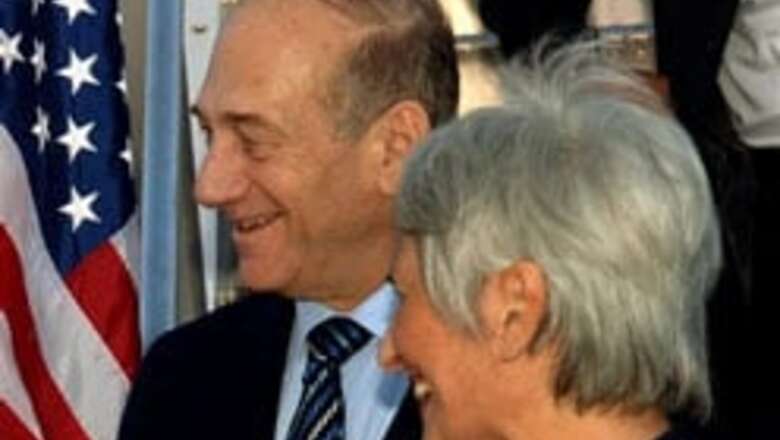
views
Milan: Israel is ‘very close’ to its goal against Hezbollah in Lebanon and the UN will likely vote on a truce next week, Prime Minister Ehud Olmert said in a newspaper interview published on Thursday.
Olmert told Italy's Corriere della Sera newspaper that US Secretary of State Condoleezza Rice did not expect a truce to end fighting in Lebanon in the next few days.
"It's more likely that there will be a vote in the UN next week," he was quoted as saying. "The process is long," he said.
"From our standpoint, we will cooperate with any reasonable proposal." Asked what Israel's objectives were, Olmert said the Jewish state should no longer face the threat that existed before fighting broke out after Hezbollah snatched two Israeli soldiers in a raid across the border on July 12.
"The new equation will spell out a completely different balance in the area," he said. "Hezbollah will think twice, three times, many times before attacking us, and I think we are very close to that goal."
Olmert reiterated that Israel will keep fighting Hezbollah until a strong international force is in south Lebanon. Any such force should be deployed immediately after the start of a ceasefire, he said.
"Let's say if we stop firing at midnight, they should be deployed on the ground and replace us by two o'clock in the morning," Olmert said. He called the UN forces in south Lebanon inefficient, and said any international force should be able to fight and be modeled on Afghanistan's US-led "Enduring Freedom" mission.
Olmert dismissed a suggestion that Hezbollah backers Syria and Iran could help resolve the crisis in Lebanon. European governments have been reaching out to both countries in an attempt to engage them in a solution to the war.
"Iran is trying to obtain non-conventional weapons and its president, Mahmoud Ahmadinejad, keeps saying that Israel should be wiped from the map. On what basis can there be cooperation with Iran?"
Olmert said Italian Prime Minister Romano Prodi, whose government has played an active diplomatic role in seeking a ceasefire, had called Syrian President Bashar al-Assad. "What was the result? What was Damascus's reaction to his phone call?" Olmert asked.


















Comments
0 comment